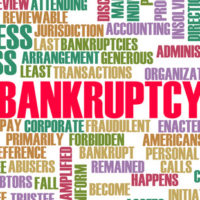Understanding Chapter 7 Bankruptcy

For many people, debt can be so overwhelming that they may think they have nowhere to turn. For larger amounts of debt, Chapter 7 bankruptcy may be the solution. The best way to navigate the bankruptcy filing laws in Florida is to seek guidance from a team of experienced, knowledgeable West Palm Beach Chapter 7 bankruptcy attorneys that can walk you through the process.
What is Chapter 7 bankruptcy?
Chapter 7 bankruptcy is available to individuals, married couples, corporations, and partnerships. It’s also the easiest to file and the most common type of bankruptcy for individuals. Around 60% of bankruptcy filings are Chapter 7.
Chapter 7 bankruptcy is also known as “liquidation bankruptcy” because it resolves the majority of a person’s unsecured debts, including medical bills, credit cards, and personal loans. Any non-exempt assets the person has are sold by a Chapter 7 trustee and the proceeds are split amongst the creditors.
In some cases, these assets may be sold back to the person filing at an agreed upon price.
The means test
When seeking to file for Chapter 7 bankruptcy in Florida, one must take a means test to determine if they are eligible to file. The means test was designed to ensure that Chapter 7 is limited to those who need it most by determining whether one’s income is low enough.
To qualify for Chapter 7 bankruptcy, you don’t have to be flat broke. If you have expenses like a mortgage or car loan to pay off, those are considered when examining your income. Failing the means test doesn’t mean you can’t file for bankruptcy either. In that case, there are other options for you to consider.
How to file for Chapter 7 bankruptcy
In order to file for Chapter 7 bankruptcy in Florida, one must sign and file an official petition, schedules, and financial statements to the court. All financial history, debts, and assets must be included in this filing and it must be submitted under penalty of perjury.
Using the schedules, which must be filed in the district the filer lived for the greater part of the past 180 days, he/she must list all creditors and debts, even if they are non-dischargeable. Assets listed can include personal bank accounts, real estate, vehicles, and other properties like clothing, jewelry, and furniture.
Upon filing the petition, a trustee from the court notifies all listed creditors that a person has filed for Chapter 7 bankruptcy and an automatic stay goes into effect that keeps creditors from attempting to collect on that person’s debts.
It’s also important to understand what assets, such as a home or other properties, are exempt under Chapter 222 of the Florida Statutes and the Florida Constitution when filing for Chapter 7 bankruptcy.
Consequences of filing for Chapter 7 bankruptcy
Filing for Chapter 7 bankruptcy in Florida undoubtedly takes a toll on those who choose to do it. Like any form of bankruptcy, it does have consequences – both good and bad.
Chapter 7 bankruptcy keeps creditors away, pushes the filer toward being more financially responsible, and allows them to keep much of their property. It can also affect a person’s credit score for up to 10 years, make it close to impossible to get a mortgage, and won’t relieve any student loan debt or things like alimony and child support.
Even after looking at all the options available, a person with a vast amount of debt may find that filing for Chapter 7 bankruptcy is the best choice for them. In any case, it’s best to seek the advice of an experienced bankruptcy attorney that understands the law to guide you through the process. Contact us today at Kelley Kaplan Delaney & Eller, PLLC, for help.
Resource:
flsenate.gov/Laws/Statutes/2018/Chapter222



